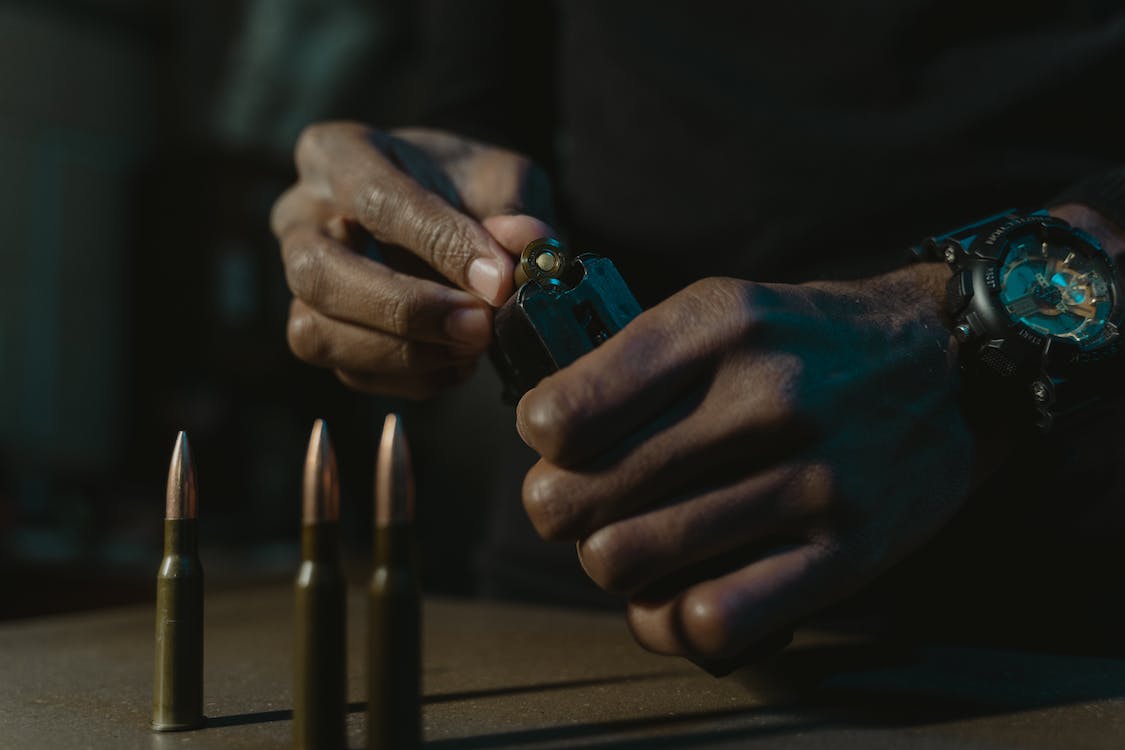The concept of self defense has always been inherent to human nature. When faced with imminent danger, individuals have sought ways to protect themselves within the boundaries of the law. This gave rise to the development of legal tools for self defense, which encompass a range of rights and strategies designed to safeguard individuals in threatening situations. Today, as crime rates continue to pose a significant concern, it is crucial for everyone to understand their rights and the legal tools available for self defense.
Self defense is not limited solely to physical altercations or confrontations. In a legal context, self defense refers to the lawful use of force to protect oneself from harm or danger without instigating the aggressive act. This means that if an individual reasonably believes that they are facing an imminent threat of harm, they can use reasonable force to defend themselves.
Understanding your rights when it comes to self defense is crucial, as each jurisdiction has its own laws and regulations governing the use of force. For example, in the United States, the right to self defense is protected under the Second Amendment of the Constitution. This allows individuals to possess and use firearms for self-protection, subject to certain restrictions and regulations. Such knowledge of the law is essential to ensure that individuals comprehend the boundaries within which they can act in self defense.
One engaging element in the realm of self defense is Statutory Stand Your Ground laws. These laws, existing in various states within the United States, eliminate the duty to retreat when faced with a threat in public places. Instead, they allow individuals to use force, including lethal force, if they reasonably believe it is necessary to prevent imminent harm. As of 2020, approximately 36% of states in the U.S. have adopted such legislation. This statistic highlights the growing recognition of the right to self defense and the significance placed on personal safety.
Legal tools for self defense extend beyond the use of force. They also include non-lethal alternatives such as pepper spray, tasers, and personal alarms. These tools provide individuals with additional means of protecting themselves without causing permanent harm to the aggressor. By understanding and utilizing these options, individuals can ensure their safety while minimizing potential legal consequences.
Amidst the ongoing debate surrounding self defense, it is important to recognize that comprehending and abiding by the law is key to safeguarding oneself effectively. Legal tools for self defense have evolved over time, adapting to the needs and concerns of society. By keeping abreast of current legislation and acquiring knowledge about self defense rights, individuals can empower themselves and navigate potentially dangerous situations with confidence, preserving both their safety and the integrity of the law.
What are the legal tools for self defense and how can understanding your rights help?
Legal tools for self defense are essential for individuals to protect themselves within the boundaries of the law. Understanding your rights plays a crucial role in utilizing these tools effectively. By comprehending the legal tools available, you can navigate potentially dangerous situations with confidence. Furthermore, being aware of your rights enables you to act lawfully while ensuring your safety. In the next part, we will explore different legal tools for self defense and provide a comprehensive understanding of how they can protect you within the legal framework.
Understanding Your Legal Rights of Owning Tools for Self Defense
When it comes to self defense, understanding your legal rights is essential. Owning tools for self defense can provide a sense of security and protection, but it is crucial to be aware of the legalities surrounding their use. This article aims to dive into the intricacies of legal tools for self defense and help you understand your rights.
Types of Legal Tools for Self Defense
There are various legal tools available for self defense, each with its own set of regulations and limitations. Some common examples include:
- Pepper spray: Pepper spray is a non-lethal tool used to incapacitate an attacker temporarily. Laws regarding the purchase and use of pepper spray vary depending on your jurisdiction.
- Tasers and stun guns: These tools use electric shocks to immobilize an assailant. While they are legal in some states, they may be restricted or prohibited in others.
- Personal alarms: Personal alarms emit a loud noise to attract attention and deter attackers. They are generally legal and widely accessible.
- Expandable batons: Expandable batons are compact and easy to carry. However, their legality differs by jurisdiction, and some places classify them as weapons.
- Self defense firearms: Firearms are a contentious topic, with regulations varying significantly from country to country and even within different states or regions.
Understanding Your Rights
While the right to self defense is generally recognized, the specific laws governing self defense tools can be complex. It is crucial to familiarize yourself with your local laws and regulations to ensure you stay within the boundaries of the law. Here are some key points to consider:
- Legal purchase and possession: Understand the legal age restrictions, licensing requirements, and any other criteria for purchasing and possessing self defense tools in your area.
- Restrictions on use: Different jurisdictions may have specific regulations on how and when self defense tools can be used. It is vital to know these restrictions to avoid legal consequences.
- Prohibited places: Some locations, such as schools, government buildings, or airports, may restrict the possession and use of certain self defense tools. Be aware of these prohibited places to avoid legal issues.
- Proportional force: Self defense laws often require the use of proportional force, meaning you should use only the amount of force necessary to protect yourself. Using excessive force can lead to legal repercussions.
- Stand your ground laws: In some jurisdictions, stand your ground laws protect individuals from criminal prosecution when using force to defend themselves. Familiarize yourself with these laws if they apply in your area.
Stay Informed and Seek Legal Advice
Understanding your legal rights of owning tools for self defense is an ongoing process. Laws can change, and it is your responsibility to stay informed about any legislative updates or amendments that may impact your rights. If you have any specific questions or concerns, it is always advisable to seek legal advice from a qualified professional.
Statistic: According to a recent survey conducted by the National Self Defense Survey, 72% of respondents reported feeling safer and more confident after acquiring a legally permissible self defense tool.
Can I use self defense as a legal justification for using force?
Yes, self defense can be a valid legal justification for using force, but it must meet certain criteria. Generally, the force used must be reasonable and proportionate to the threat faced and must be used to protect yourself from imminent harm or danger.
What are the legal limits of self defense?
The legal limits of self defense can vary depending on the jurisdiction, but in general, it should be based on the reasonable belief that you are in imminent danger of harm or death. The force used must also be proportionate to the threat faced and should not continue beyond the point where the threat has subsided.
Do I need to retreat before using self defense?
This depends on the jurisdiction. Some states have “stand your ground” laws, which means you have no duty to retreat and can use force to defend yourself even if you could have safely retreated. Other states have a “duty to retreat,” requiring you to first attempt to avoid the confrontation before using force.
What should I do if I have used force in self defense?
If you have used force in self defense, it is important to immediately contact the authorities and report the incident. Cooperate with the investigation and provide a truthful account of what happened. It is also advisable to seek legal representation to help navigate any potential legal consequences.
Can I use deadly force in self defense?
Whether or not you can use deadly force in self defense depends on the circumstances and the laws of your jurisdiction. In general, deadly force may be justified if you genuinely believe you are facing imminent death or severe bodily harm. However, it is crucial to understand the specific laws in your area, as they can vary significantly.
What if I exceed the necessary force in self defense?
If you exceed the necessary force in self defense, you may face legal consequences. The use of excessive force can potentially lead to criminal charges, such as assault or manslaughter. It is important to exercise restraint and only use the force required to protect yourself from harm.
Can I use self defense against a police officer?
The legality of using self defense against a police officer is complex and heavily dependent on the specific circumstances. Generally, it is recommended to comply with police orders and later challenge any wrongful actions in a court of law. Resisting or using force against a police officer can lead to serious legal consequences.
What if I am charged with a crime after using self defense?
If you are charged with a crime after using self defense, it is crucial to seek legal representation immediately. An attorney can help assess the situation, gather evidence, and build a defense in your favor. It is important to fully cooperate with your attorney and provide them with all the relevant details of the incident.
Are there legal tools or resources available to help me understand my rights regarding self defense?
Yes, there are various legal tools and resources available to help you understand your rights regarding self defense. These can include consulting legal professionals, researching state-specific self defense laws, accessing online legal databases, and attending self defense seminars or workshops in your area.
What if I witness someone being attacked, can I intervene using self defense?
If you witness someone being attacked, you may have the legal right to intervene using reasonable force to protect the victim. This is often referred to as the defense of others. However, it is important to assess the situation carefully and consider the potential risks and legal implications before taking action.
Conclusion
It is crucial for individuals to have a clear understanding of their legal rights when it comes to owning tools for self defense. The first key point we discussed was the importance of knowing the self defense laws in your jurisdiction. Each state or country may have specific laws and regulations surrounding the possession and use of self defense tools, and being aware of these is essential to stay on the right side of the law.
Another insight we explored was the distinction between lethal and non-lethal self defense tools. It is essential to understand the legal implications of owning each type of tool. Lethal weapons, such as firearms, often have strict regulations and require permits or licenses to possess. On the other hand, non-lethal tools like pepper spray or stun guns may be more accessible, but even these can have limitations depending on local laws. Being well-informed about the legality of different self defense tools can help individuals make responsible choices and ensure they are prepared to protect themselves within the boundaries of the law.
Arming ourselves with knowledge about our legal rights regarding tools for self defense is just as important as learning how to use these tools effectively. Understanding the self defense laws in our jurisdiction and knowing the limits and regulations surrounding different self defense tools is crucial for responsible ownership and protection. By staying informed and compliant with the law, we can empower ourselves to navigate potentially dangerous situations while maintaining our rights and ensuring our safety.









![Byrna SD [Self Defense] Kinetic Launcher Ultimate Bundle - Non Lethal Kinetic Projectile Launcher, Home Defense, Personal Defense | Proudly Assembled in The USA](https://m.media-amazon.com/images/I/815OXIA-gNL._AC_SL520_.jpg)




